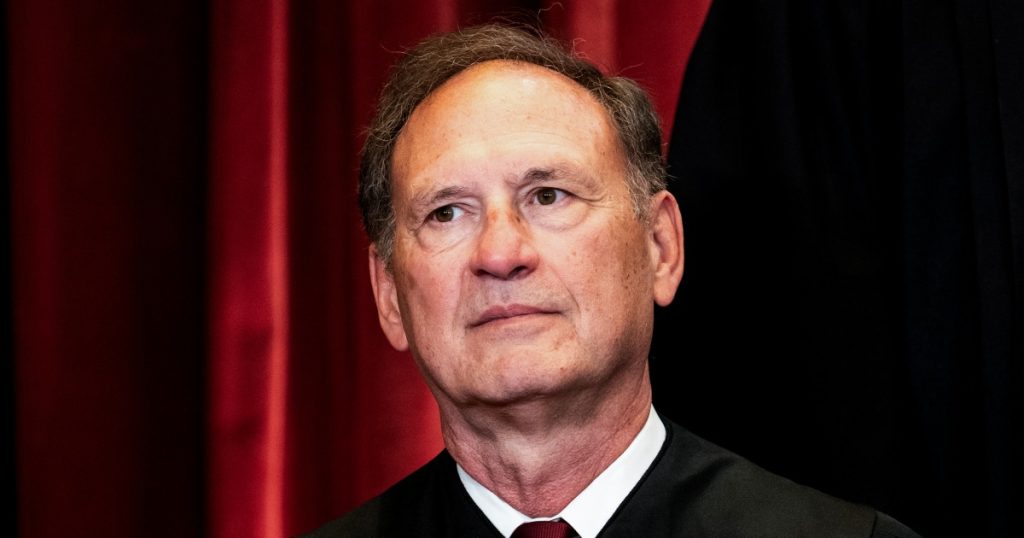Conservative Justice Samuel Alito, known for his support of prosecutors, has recently shown empathy for defendants in cases involving gun owners, Jan. 6 rioters, and former President Donald Trump. Despite his reputation as being hostile to criminal defendants, Alito has raised questions about the Justice Department’s decisions to prosecute certain cases, expressed sympathy for Trump’s argument for immunity from prosecution, and aired concerns about gun owners being charged. This change in behavior has been noted by observers and could signal a shift in Alito’s approach to criminal cases.
During oral arguments on whether Trump should be immune from prosecution for his actions surrounding the 2020 election, Alito questioned the Justice Department’s trustworthiness in seeking charges in politically charged cases. He referenced the ease with which prosecutors can obtain indictments and joked about rare instances where grand juries refuse to indict. This behavior surprised some observers, given Alito’s background as a prosecutor. Over the years, Alito has voted in favor of criminal defendants only 20% of the time, but his recent questioning of government actions suggests a new perspective on criminal justice issues.
In past cases, Alito has typically sided against criminal defendants and often disagreed with even conservative colleagues on rulings. However, in recent oral arguments, Alito has taken a more defendant-friendly tone, questioning government prosecutions and expressing concerns about due process rights for gun owners. His comments have surprised some observers who view him as traditionally pro-government and anti-criminal defendant. This shift in behavior has raised questions among legal experts about Alito’s evolving approach to criminal cases.
Alito’s defenders argue that there is a consistent thread in his criminal jurisprudence, reflecting his aversion to legal reasoning that could upend social order. They point to his recent comments as a reflection of his approach to legal issues rather than a departure from his past views. However, critics see Alito’s selective empathy as catering to conservative cultural grievances and aligning with the type of views that helped Trump gain support. They view Alito as a symbol of the conservative pushback against social changes and view his recent comments as reinforcing that perspective.
Overall, Alito’s recent behavior in criminal cases has surprised observers and legal experts alike. His questioning of government actions, expressions of empathy for defendants, and concerns about due process rights mark a departure from his previous stance on criminal justice issues. Whether this shift represents a lasting change in Alito’s approach or is a temporary deviation remains to be seen. As the Supreme Court issues rulings in the cases under consideration, Alito’s comments and voting patterns will provide further insight into his evolving views on criminal defendants and government prosecution.


